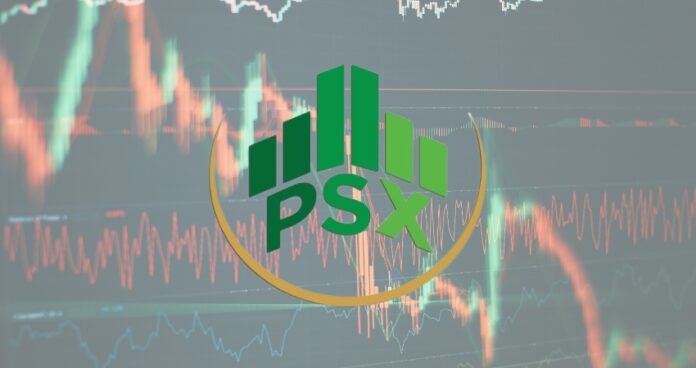KARACHI: The Pakistan Stock Exchange (PSX) faced a sharp downturn on Wednesday, with the benchmark KSE-100 Index closing at 111,326.57, down 3,545.61 points or 3.09%, as investors reacted nervously to escalating geopolitical tensions with India.
The market opened negative and sustained downward momentum throughout the day, having already dropped over 2% by midday. By 12:56pm, the index was hovering at 112,482.00, reflecting a decline of 2,390.18 points or 2.08%.
The sell-off intensified after Federal Information Minister Attaullah Tarar warned in a press conference and subsequent post on X (formerly Twitter) that India could launch a military strike within the next 24 to 36 hours. The statement cited “credible intelligence” and alleged that India might use the recent Pahalgam attack as a pretext for aggression.
“Pakistan has credible intelligence that India intends to launch a military strike within the next 24 to 36 hours using the Pahalgam incident as a false pretext,” the minister said, calling the development “highly provocative and dangerous.”
Market analysts say the political uncertainty has forced investors into risk-off mode, with many liquidating positions in blue-chip and high-capitalization stocks.
“The fear of conflict has created a panic-like situation on the trading floor. Even fundamentally strong stocks are being offloaded,” said a senior equity analyst at a Karachi-based brokerage.
The broader concern is not just the potential for a military exchange but also its implications for Pakistan’s economy, which is already navigating a fragile post-IMF stabilization path, high inflation, and tight monetary conditions. A conflict could trigger further capital flight, foreign investor exits, and currency instability.
Volume was heavily skewed towards defensive stocks and sectors less exposed to external shocks, such as utilities and select pharmaceuticals. Meanwhile, heavyweights in the banking, cement, and exploration and production sectors led the decline.
The PSX had remained under pressure throughout the week, with political noise and security developments in the region dominating sentiment. Wednesday’s sharp dip, however, reflects a full-blown escalation of investor concerns into panic selling.
Traders and market participants await further official statements and policy responses, but caution is likely to dominate in the near term unless tensions de-escalate.




